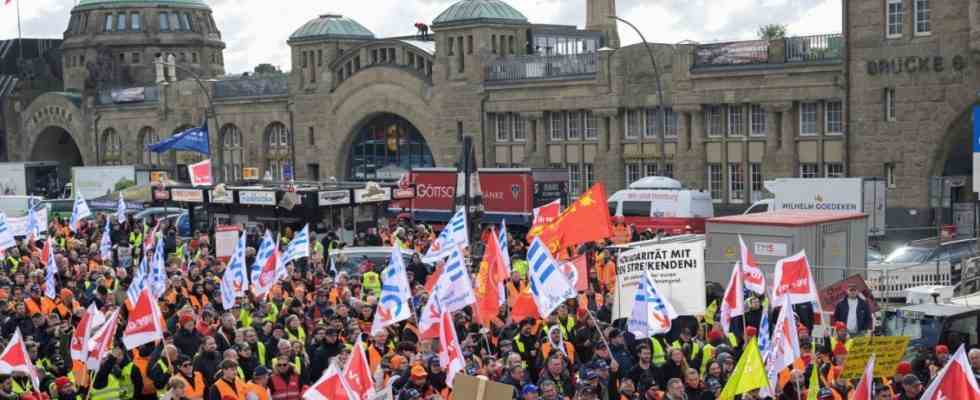The Verdi union announces new campaigns after collective bargaining in the public sector failed. “Until the beginning of the peace obligation on Sunday, we are planning individual warning strikes in various areas, including daycare centers and clinics,” said Verdi boss Frank Werneke in an interview with the Süddeutsche Zeitung. However, one does not want to paralyze entire administrations or companies. However, that could change soon. If the outcome of the forthcoming arbitration and the subsequent negotiations are not sufficient, “we would have to decide on a nationwide strike,” Werneke made clear.
The collective bargaining talks for 2.5 million administrative employees, educators and garbage workers at the federal and municipal levels initially failed on Thursday night. The employers then appealed to arbitration. The employers named the former Prime Minister of Saxony Georg Milbradt (CDU), Verdi the former Bremen State Councilor Hans-Henning Lühr (SPD). From next Sunday to mid-April, they should work out a wage proposal. During this time there is a peace obligation, so no strikes are allowed.
In the collective bargaining round, Verdi and the Civil Service Association are demanding 10.5 percent more wages for one year and a minimum monthly increase of 500 euros, citing inflation and staff shortages. The employers increased their offer during the night: They reportedly offered eight percent more wages, a minimum plus of 300 euros and an inflation premium of 3,000 euros – but based on a term of the collective agreement of two years.
Werneke describes it as “unacceptable” that employers only want to pay a minimum plus of 150 euros per year. “This does not meet our most important goal: financial compensation for those employees who are particularly suffering from inflation,” he told the SZ. Many employees in the public sector earned less than 2000 euros net per month. Werneke also criticizes the negotiating style of employers as opaque and chaotic; these quoted different figures in the media than in the negotiations.
He was skeptical about the arbitration: “The question is whether there are new starting points.” Werneke was sure that if the arbitration failed, the members would vote for new strikes. He referred to the big traffic strike on Monday. “We have seen how many people are ready to take to the streets. With what the employers have put on the table so far, I have no doubt that we can get a majority.” In 1992, garbage workers and educators went on strike for eleven days after a settlement failed. Employers were disappointed. “We very much regret that the agreement did not come about,” said negotiator Karin Welge. “The trade unions have walled in their demands and have not moved sufficiently.”

